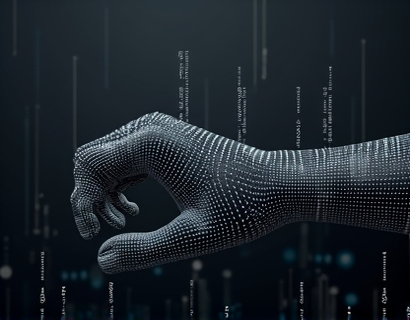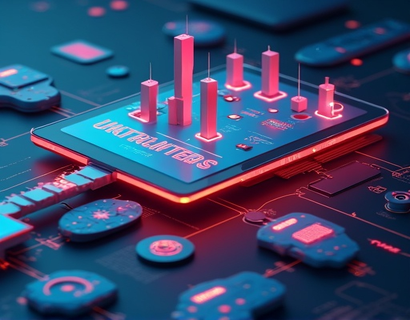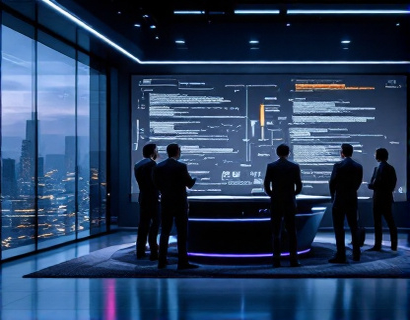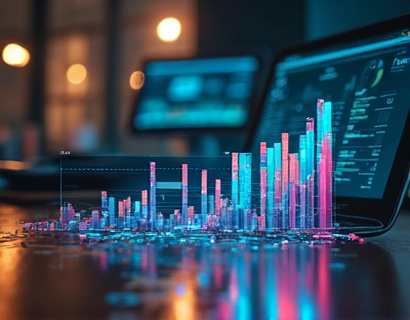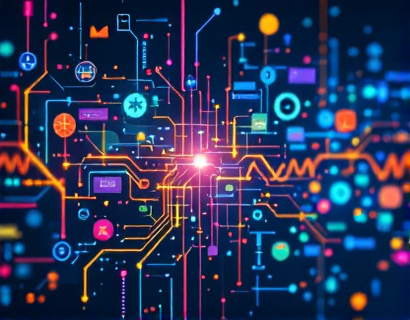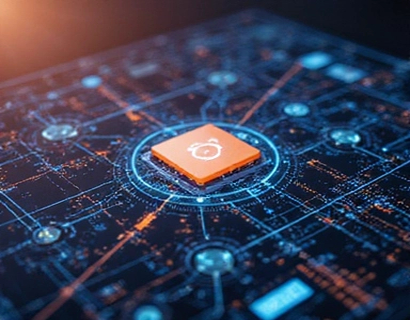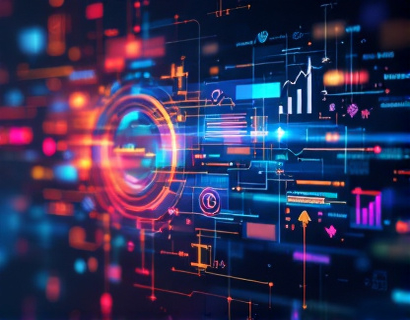Unleashing Advanced Digital Transformation: The Synergy of Crypto and AI
The intersection of cryptocurrency and artificial intelligence (AI) represents a pivotal moment in the evolution of digital technologies. This synergy is not just about combining two powerful tools but about creating a new paradigm for digital transformation. The integration of blockchain and AI is reshaping the way we interact with digital ecosystems, offering enhanced security, efficiency, and personalized experiences. This article delves into the transformative potential of this union, exploring its applications and the profound impact on user experiences and business growth.
The Foundations of Cryptocurrency and AI
To understand the synergy between cryptocurrency and AI, it's essential to first grasp the fundamentals of each technology. Cryptocurrency, exemplified by Bitcoin and Ethereum, is a digital or virtual currency that uses cryptography for security and operates on a decentralized network known as a blockchain. This decentralized nature ensures transparency, immutability, and reduces the need for intermediaries.
Artificial intelligence, on the other hand, involves the simulation of human intelligence processes by machines, particularly computer systems. These processes include learning (the acquisition of information and rules for using it), reasoning (using rules to reach approximate or definite conclusions), and self-correction. AI's capabilities range from simple data analysis to complex decision-making and natural language processing.
The convergence of these technologies leverages the strengths of both. Blockchain provides a secure and transparent platform for AI to operate, ensuring data integrity and trust. Conversely, AI enhances blockchain's functionality by optimizing processes, improving security, and enabling more sophisticated applications.
Enhanced Security through Blockchain and AI
One of the most significant benefits of combining cryptocurrency and AI is the enhancement of security measures. Blockchain's inherent security features, such as cryptographic hashing and consensus mechanisms, provide a robust framework. AI can further bolster this by detecting and mitigating threats in real-time.
Machine learning algorithms can analyze patterns and identify anomalies that may indicate fraudulent activities or security breaches. For instance, AI-driven systems can monitor blockchain transactions and automatically flag suspicious behavior, reducing the risk of cyber attacks. This proactive approach to security is crucial in an era where digital threats are increasingly sophisticated.
Moreover, AI can improve the management of private keys and wallet security. By using AI to generate and manage complex cryptographic keys, users can enhance their security without compromising usability. This integration ensures that users have peace of mind when engaging in cryptocurrency transactions and smart contract executions.
Optimized Smart Contracts with AI
Smart contracts, self-executing contracts with the terms directly written into code, are a cornerstone of blockchain technology. However, their efficiency and reliability can be limited by the static nature of the code. AI can revolutionize smart contracts by making them more dynamic and adaptive.
AI algorithms can analyze vast amounts of data to optimize smart contract logic, ensuring they operate efficiently under various conditions. For example, AI can help in predicting and adjusting to market fluctuations, automating complex business logic, and enhancing the overall performance of smart contracts. This results in more reliable and responsive decentralized applications (dApps).
Additionally, AI can assist in the creation of more sophisticated and secure smart contracts by identifying potential vulnerabilities and suggesting improvements. This reduces the risk of bugs and exploits, making dApps more trustworthy and user-friendly.
Personalized User Experiences through AI
The true power of AI in the context of cryptocurrency lies in its ability to deliver personalized experiences. By leveraging user data and behavior patterns, AI can tailor services and applications to individual preferences, enhancing user engagement and satisfaction.
For instance, AI-driven recommendation systems can suggest relevant cryptocurrency investments based on a user's historical behavior, risk tolerance, and market trends. Similarly, AI can personalize the user interface and functionalities of blockchain-based platforms, making them more intuitive and accessible. This level of personalization is particularly valuable in a decentralized ecosystem where users have diverse needs and preferences.
Moreover, AI can improve customer support through chatbots and virtual assistants that understand and respond to user queries in real-time. These AI-powered tools can provide instant assistance, reducing user frustration and increasing the overall user experience.
Decentralized Finance (DeFi) and AI
Decentralized Finance (DeFi) is a rapidly growing sector that leverages blockchain technology to create financial services without traditional intermediaries. AI plays a crucial role in enhancing the capabilities of DeFi platforms.
AI can optimize lending and borrowing processes by analyzing creditworthiness and risk factors in real-time, enabling more accurate and fair lending decisions. Predictive analytics can forecast market trends, helping users make informed investment choices. Additionally, AI-driven risk management systems can monitor and mitigate potential losses, ensuring the stability and reliability of DeFi protocols.
Smart insurance products powered by AI can also revolutionize the financial landscape. By assessing risk more accurately and dynamically adjusting premiums, these insurance solutions can provide more equitable and efficient coverage. This integration of AI in DeFi not only enhances functionality but also democratizes access to financial services.
Supply Chain Transparency and Efficiency
Beyond finance, the combination of cryptocurrency and AI is transforming supply chain management. Blockchain provides a transparent and immutable ledger for tracking goods from production to delivery, while AI optimizes the entire process.
AI algorithms can analyze supply chain data to identify bottlenecks, predict delays, and optimize logistics. This results in faster and more efficient delivery, reducing costs and improving customer satisfaction. Additionally, AI can enhance traceability by verifying the authenticity and origin of products, combating issues like counterfeiting and ensuring ethical sourcing.
Cryptocurrency can facilitate seamless and secure transactions within the supply chain, eliminating the need for intermediaries and reducing transaction costs. Smart contracts can automate payments and ensure compliance with contractual obligations, further streamlining operations.
Enhanced Data Analytics and Insights
The synergy of cryptocurrency and AI is particularly potent in data analytics. Blockchain ensures the integrity and security of data, while AI provides advanced analytics capabilities.
By leveraging blockchain, businesses can store and share data in a secure and transparent manner. AI can then process this data to uncover valuable insights, predict trends, and inform strategic decisions. This combination enables more accurate and reliable data analysis, leading to better business outcomes.
For example, in the realm of cryptocurrency trading, AI can analyze market data stored on a blockchain to identify patterns and make predictive trades. This not only enhances trading strategies but also provides a level of transparency that builds trust among users.
Challenges and Considerations
While the potential of combining cryptocurrency and AI is vast, there are challenges that need to be addressed. One of the primary concerns is the regulatory landscape. The decentralized nature of blockchain and the innovative use of AI raise questions about compliance and governance.
Regulators are still catching up with these technologies, and the lack of clear guidelines can create uncertainty for developers and users. It's essential for the industry to engage with regulatory bodies to establish frameworks that promote innovation while ensuring safety and compliance.
Another challenge is the technical complexity involved in integrating blockchain and AI. Developing robust and scalable solutions requires expertise in both domains. Collaboration between blockchain developers and AI specialists is crucial to overcome these technical hurdles.
Future Prospects
The future of cryptocurrency and AI is bright, with numerous opportunities for growth and innovation. As technology advances, we can expect more sophisticated applications that further blur the lines between these fields.
One exciting area is the development of AI-powered decentralized autonomous organizations (DAOs). These organizations can leverage AI to make collective decisions, manage resources, and execute strategies autonomously. The combination of blockchain's transparency and AI's decision-making capabilities can lead to more efficient and democratic organizational structures.
Additionally, the integration of AI with other emerging technologies like the Internet of Things (IoT) and 5G networks will create a more interconnected and intelligent digital world. Cryptocurrency will play a vital role in facilitating transactions and ensuring security in this interconnected ecosystem.
In conclusion, the synergy between cryptocurrency and AI is driving a new era of digital transformation. By enhancing security, optimizing processes, and delivering personalized experiences, this combination is reshaping the digital landscape. Tech professionals and early adopters have a unique opportunity to explore and contribute to this exciting frontier, paving the way for a more innovative and connected future.



